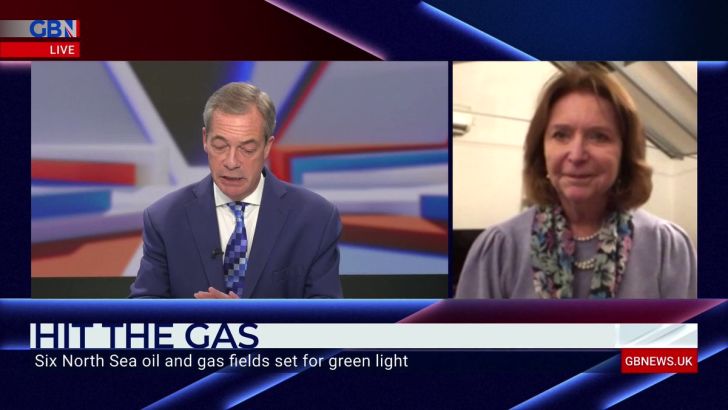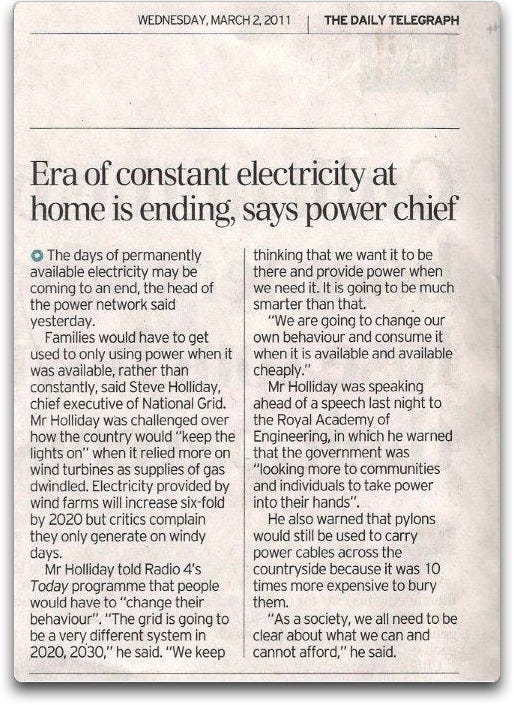Re-writing energy policy history
Late entries to the Net Zero-sceptic side aren't entirely straight about the past
Energy UK is a lobbying organisation. It doesn't represent the consumer's interest. Its current CEO was a WWF staffer.

Knight is misleading. Economy7 was offered to consumers because of a predictable SURPLUS of power at night. Time-of-Day pricing is proposed to manage shortage.
The failure to make clear that fundamental difference is exactly the kind of disingenuous doublespeak that has got us to this point.

Oh, ya think?!!

Where were these arguments in 2010? 2008? 2005? ...
The idea that this problem is going to be easily solved by pumping a bit more gas and trying to get an unproven reactor technology commercialised is also misleading. The problems are policy, capital, and politics. The government is going to find it hard to undo their own work.
You may think I am being harsh, but it was *clear* eleven years ago that the entire industry was talking to itself about rationing. And how great it would be.
Here is the full dialogue referred to, in 2011...
Evan Davis: It's 11 minutes to 9. Now, we are in the midst of some very big decisions as to how we generate and distribute electricity in Britain. So says Steve Holliday, the Chief Executive of the National Grid company. He's giving the annual lecture tonight at the Royal Academy of Engineering, on the subject where we are in electricity, and he joins us in the studio now. Good morning.
Steve Holliday: Good morning.
Evan Davis: So there is a lot going on. Why don't you just run through some of the big things? Why this is rather a critical moment in our electricity industry.
Steve Holliday: This is critical, I think, in our energy industry, actually. Firstly, 25% of all the power stations in the UK will shut by 2020. Almost half will disappear by 2030. And the decisions that government are going to make this year, about the way the energy market works, are crucial. They've got to be the right decisions, to make sure that new generation stations are built. At the same time, our networks are now 50, 60 years old, and we need to be replacing, and modernising and smartening those, and there are decisions around those investments that are actually going to be made in 2011.
Evan Davis: And are we making those decisions fast enough, sensibly?
Steve Holliday: Well, that's one of the things I'm provoking [sic]) this evening. We have to make those decisions this year and they have to be right.
Evan Davis: And why - why would you need to provoke a debate on that? What are the decisions? Is it basically - is it planning consents for new power stations, or is it that there aren't enough private investors making new power stations?
Steve Holliday: There are multiple decisions. The key decisions I'm referring to are the incentives, the investment decisions to ensure that billions of pounds, some 200 plus billions of pounds comes to the UK and invests in the energy space.
Evan Davis: And we could really do with that, from a, kind of, macroeconomic point of view. It would be quite nice now to just kick-start a big private-sector building... new power...
Steve Holliday: Absolutely, you know, this is the biggest infrastructure investment since the 1950s and '60s. It will create thousands of jobs, skilled jobs. It's a huge opportunity to kick-start the economy.
Evan Davis: "Get a move on", is your message. Let's talk about one or two specifics. Wind - as you fly in now over the Thames Estuary, you fly in to Heathrow, you begin to really see quite a lot of wind is being created - a lot of wind turbines are being created - in the Thames Estuary and around the country, aren't they?
Steve Holliday: They are, and yet that's still a drop in the ocean, compared to, in our own forecasts, if you look at the energy mix that we believe we are likely to need, to hit a low-carbon generation fleet by 2020 and 2030. Today we've got about 5 gigawatts of wind, we'll have nearly 30 by 2020...
Evan Davis: Does it work?
Steve Holliday:...just imagine...
Evan Davis: Because if the wind doesn't blow, how does the older grid cope?
Steve Holliday: The grid's going to be a very different system in 2020, 2030. We keep thinking about: we want it to be there and provide power when we need it. It's going to be a much smarter system, then. We're going to have to change our own behaviour and consume it when it's available, and available cheaply.
Evan Davis: All right, well, Steve, thanks very much for coming in. That's the Chief Executive of the National Grid, who is giving the Royal Academy of Engineering annual lecture tonight. Thanks a lot.
Could it be any clearer?
"25% of all the power stations in the UK will shut by 2020. Almost half will disappear by 2030. And the decisions that government are going to make this year, about the way the energy market works, are crucial."
Spoiler: the government (three of them, in fact) made the wrong decisions.
"They've got to be the right decisions, to make sure that new generation stations are built."
If only people had listened, eh?
"At the same time, our networks are now 50, 60 years old, and we need to be replacing, and modernising and smartening those, and there are decisions around those investments that are actually going to be made in 2011."
They weren't made.
In short - Knight isn't telling Farage anything that wasn't known in 2011.
Coincidentally, I was telling him the same in 2011, too.
Between 2011 and 2020, UK generating capacity fell from 81.8 GW to 64.8 GW, with a significantly increased proportion of the latter being intermittent capacity. Today's situation was clearly going to happen.
Politicians simply could not destroy energy infrastructure fast enough.

They all wanted to be the ones who were remembered for destroying coal power, not as the ones who replaced it with meaningful -- reliable, affordable, continuous -- alternatives.
Because they really are very stupid people.



